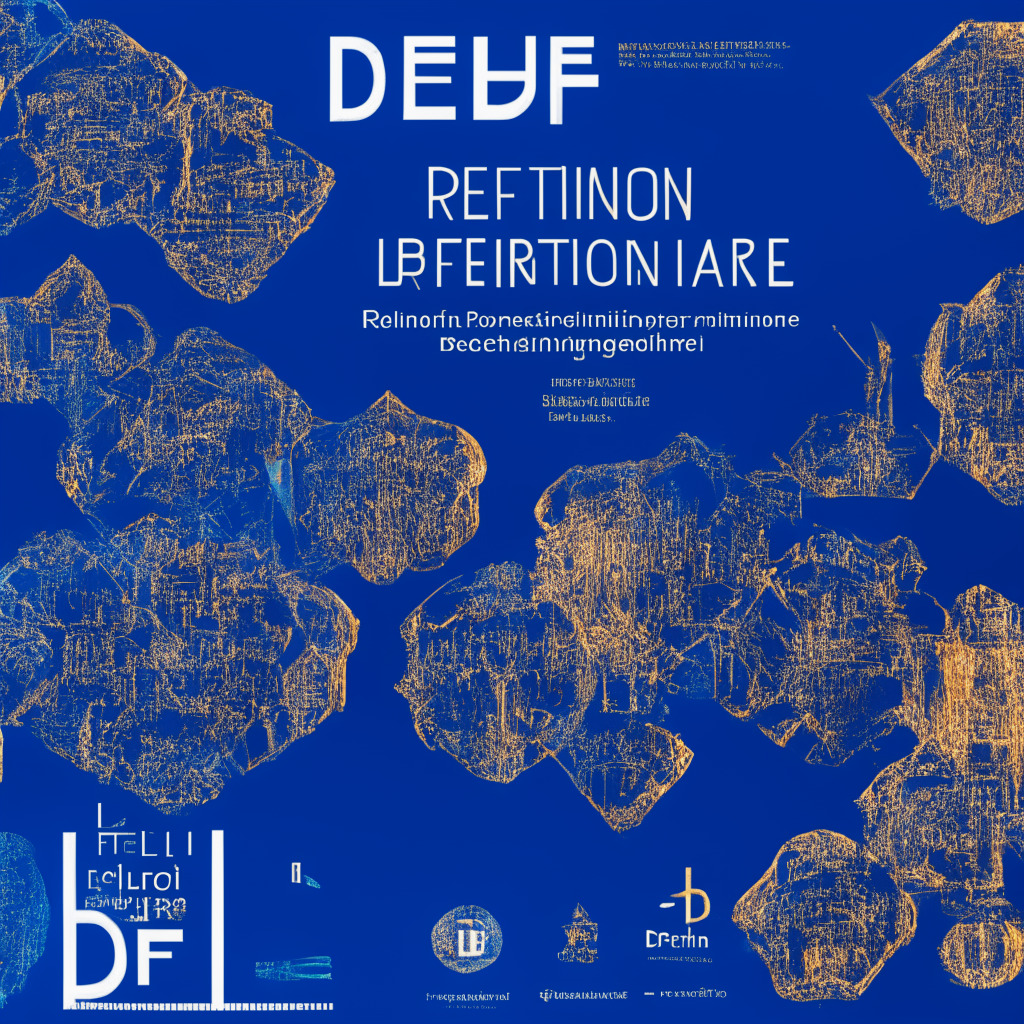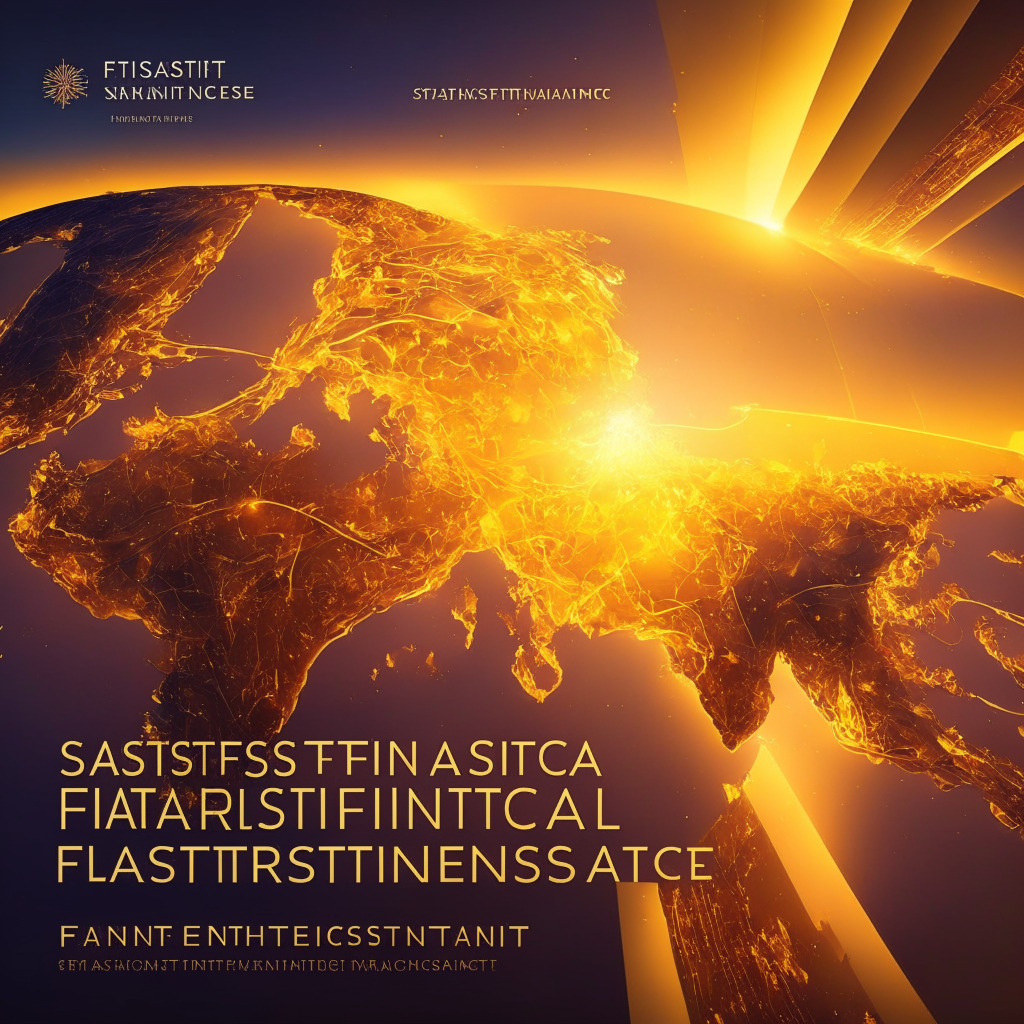The International Organization of Securities Commissions (IOSCO) has released a report proposing 18 recommendations for global crypto regulation, covering areas like conflicts of interest, cross-border risks, and market manipulation. Public consultation on these recommendations is open until July 31, potentially shaping the future of cryptocurrency regulation worldwide.
Search Results for: IOSCO
Revolutionizing Crypto Trading: A Call for Enhanced Regulation and Standards in the Crypto-sphere
The World Federation of Exchanges (WFE) suggests stronger regulation to boost the credibility and safety of crypto-asset trading platforms (CTPs). However, concerns linger as practices like CTPs trading against their customers exist. Interestingly, the WFE is inclined towards embedding transparency through regulation, hence flagging the need for standards and regulation in the crypto markets.
Decentralized Finance: A Regulatory Riddle for Global Institutions
The International Organization of Securities Commissions (IOSCO) urges regulators to understand the real power holders in DeFi despite the system’s decentralized façade. IOSCO suggests these ‘responsible persons’ should comply with investor protection and market integrity standard. Current regulations may prove ineffective due to DeFi’s unique operation models, hence requiring new regulatory approaches.
G20’s Financial Stability Board’s Recommendations for Regulating Crypto Firms: An Overview and Analysis
The Financial Stability Board (FSB) of G20 Nations has published final recommendations for regulating crypto trading firms, in response to recent cryptocurrency market volatility. These recommendations propose regulatory standards for crypto assets, focusing on customer asset protection, conflict of interest prevention, and cross-border regulatory cooperation. The measures aim to ensure financial stability and avoid future disruptions.
Australia Risks Falling Behind in Crypto Race: How Regulations and Education Can Help
Australia’s crypto industry risks falling behind emerging markets like Bermuda, Mauritius, and Nigeria. In order to remain competitive, the country must develop and implement robust crypto regulations. Collaboration between industry, academia, policymakers, and government bodies is crucial for devising effective solutions to foster innovation and growth within the crypto ecosystem.
Globally Coordinated DeFi Regulation: Balancing Innovation and Investor Protection
France’s top markets regulator, the Autorité des Marchés Financiers (AMF), calls for a globally coordinated approach to decentralized finance (DeFi) regulation, aiming to protect investors and foster innovation. The AMF highlights the challenges in categorizing and regulating DeFi protocols, emphasizing the need for consistency and uniformity in regulations across borders. A globally coordinated approach could potentially shape the DeFi industry’s future, ensuring a level playing field while promoting innovation and investor protection.
UK FCA’s New Crypto Ad Rules: Impact on Airdrops, NFTs, and Industry Growth
The UK Financial Conduct Authority (FCA) will implement new rules from October 8, affecting cryptocurrency promotions, including non-fungible tokens (NFTs) and crypto airdrops. Categorized as a “restricted mass market investment,” crypto advertising must now include clear risk warnings, and incentives for the general public will be banned.
Circle’s New Chief Legal Officer: A Path to Compliance or Regulatory Crackdown?
Stablecoin issuer Circle appoints Heath Tarbert as chief legal officer to tackle ongoing regulatory crackdown on cryptocurrencies. Tarbert’s expertise in highly-regulated industries aims to navigate complex regulatory landscapes, balancing innovation and compliance amidst increased scrutiny in the crypto industry.
Asian Nations Lead the Charge in Crypto Regulation: Innovations, Trust, and Challenges
Asian nations are increasingly regulating cryptocurrencies, with Japan enforcing stricter Anti-Money Laundering measures, South Korea mandating officials to report crypto holdings, and Hong Kong allowing licensed platforms to serve retail investors. Elsewhere, Beijing fosters Web3 technology innovation, and the International Organization of Securities Commissions pushes for global crypto regulatory frameworks.
Stablecoins, Politics, and Regulations: Navigating the Crypto Market’s Calm Before the Storm
The cryptocurrency market experienced a flat week, with Bitcoin and Ethereum remaining stable. Meanwhile, ICP and LDO faced losses, while TRON rallied. The growing crypto market attracts political involvement, and regulatory bodies emphasize the need for clear guidelines and vigilance.
Crypto Week Highlight: Mastercard, Elon, Tax Evaders, and Global Regulations
This crypto news roundup features Mastercard’s EVP on crypto and blockchain’s financial value, Ripple’s $1 billion expansion, and Biden’s crackdown on wealthy tax evaders. Other highlights include Binance’s rebuttal on mixed funds, Coinbase’s petition to the SEC, global crypto regulations, and ongoing vigilance against scams and cybercrimes.
Crypto Regulation Showdown: Balancing Innovation & Investor Protection in a Decentralized World
The International Organization of Securities Commissions (IOSCO) seeks public comment on policy recommendations for crypto and digital asset markets, addressing market abuse, client asset protection, and disclosures. Their Fintech Task Force aims to establish a regulatory agenda for fintech and cryptocurrency industries, with oversight from the Monetary Authority of Singapore. Recent events highlight the need for increased regulation, and IOSCO’s initiative seeks to create a more secure environment in the digital asset industry.











